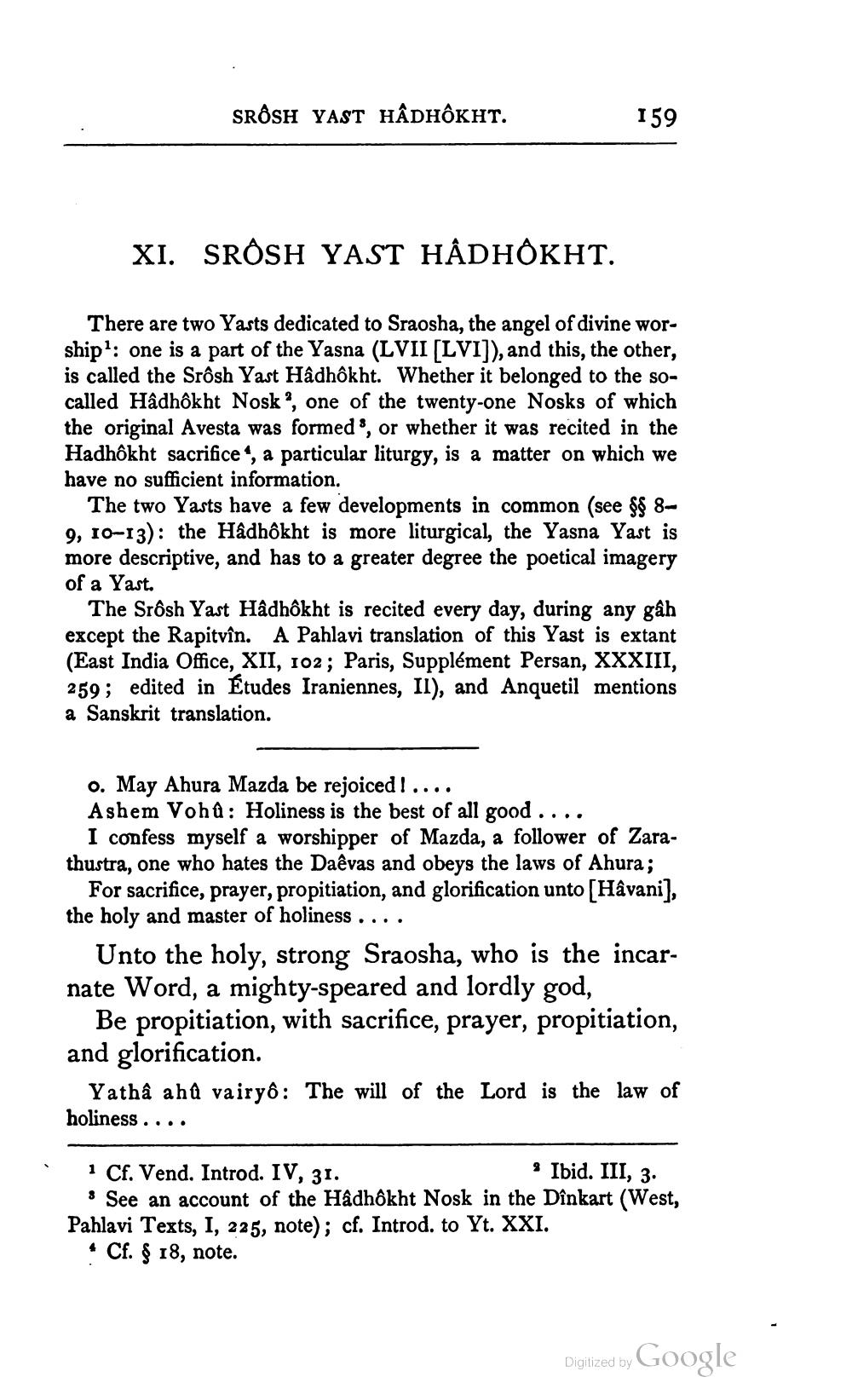________________
SRÔSH YAST HÂDHÔKHT.
159
XI. SROSH YAST HÂDHÔKHT.
There are two Yasts dedicated to Sraosha, the angel of divine worship?: one is a part of the Yasna (LVII (LVI]), and this, the other, is called the Srôsh Yast Hâdhôkht. Whether it belonged to the socalled Hadhôkht Nosk. one of the twenty-one Nosks of which the original Avesta was formed, or whether it was recited in the Hadhôkht sacrifice“, a particular liturgy, is a matter on which we have no sufficient information.
The two Yasts have a few developments in common (see $$ 89, 10-13): the Hadhôkht is more liturgical, the Yasna Yast is more descriptive, and has to a greater degree the poetical imagery of a Yast.
The Srôsh Yast Hâdhôkht is recited every day, during any gâh except the Rapitvîn. A Pahlavi translation of this Yast is extant (East India Office, XII, 102; Paris, Supplément Persan, XXXIII, 259 ; edited in Études Iraniennes, II), and Anquetil mentions a Sanskrit translation.
o. May Ahura Mazda be rejoiced l.... Ashem Vohd: Holiness is the best of all good ....
I confess myself a worshipper of Mazda, a follower of Zarathustra, one who hates the Daêvas and obeys the laws of Ahura;
For sacrifice, prayer, propitiation, and glorification unto [Hávani), the holy and master of holiness .....
Unto the holy, strong Sraosha, who is the incarnate Word, a mighty-speared and lordly god,
Be propitiation, with sacrifice, prayer, propitiation, and glorification.
Yatha ahû vairyô: The will of the Lord is the law of holiness....
* Cf. Vend. Introd. IV, 31.
Ibid. III, 3. s See an account of the Hâdhôkht Nosk in the Dînkart (West, Pahlavi Texts, I, 225, note); cf. Introd. to Yt. XXI.
. Cf. $ 18, note.
Digitized by Google




